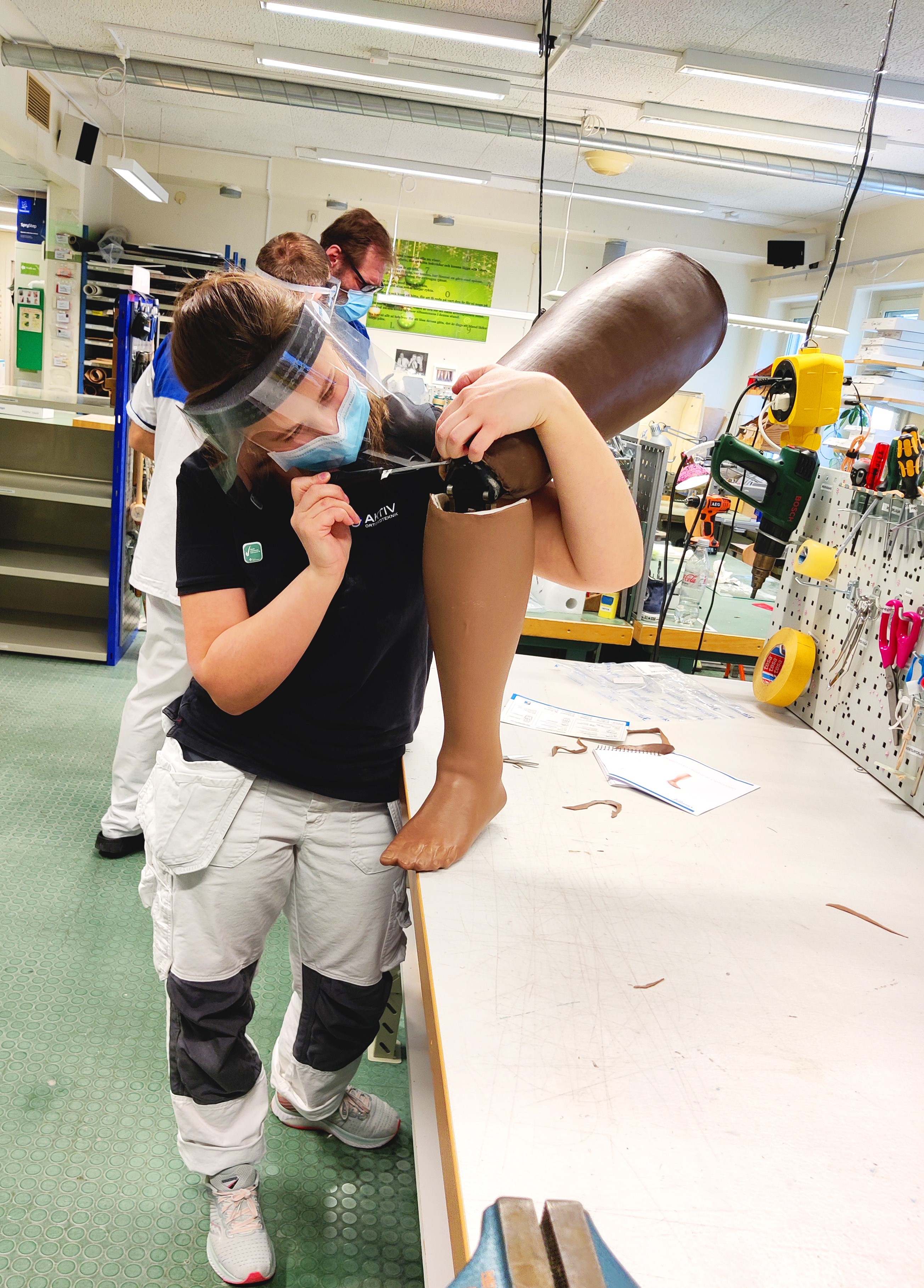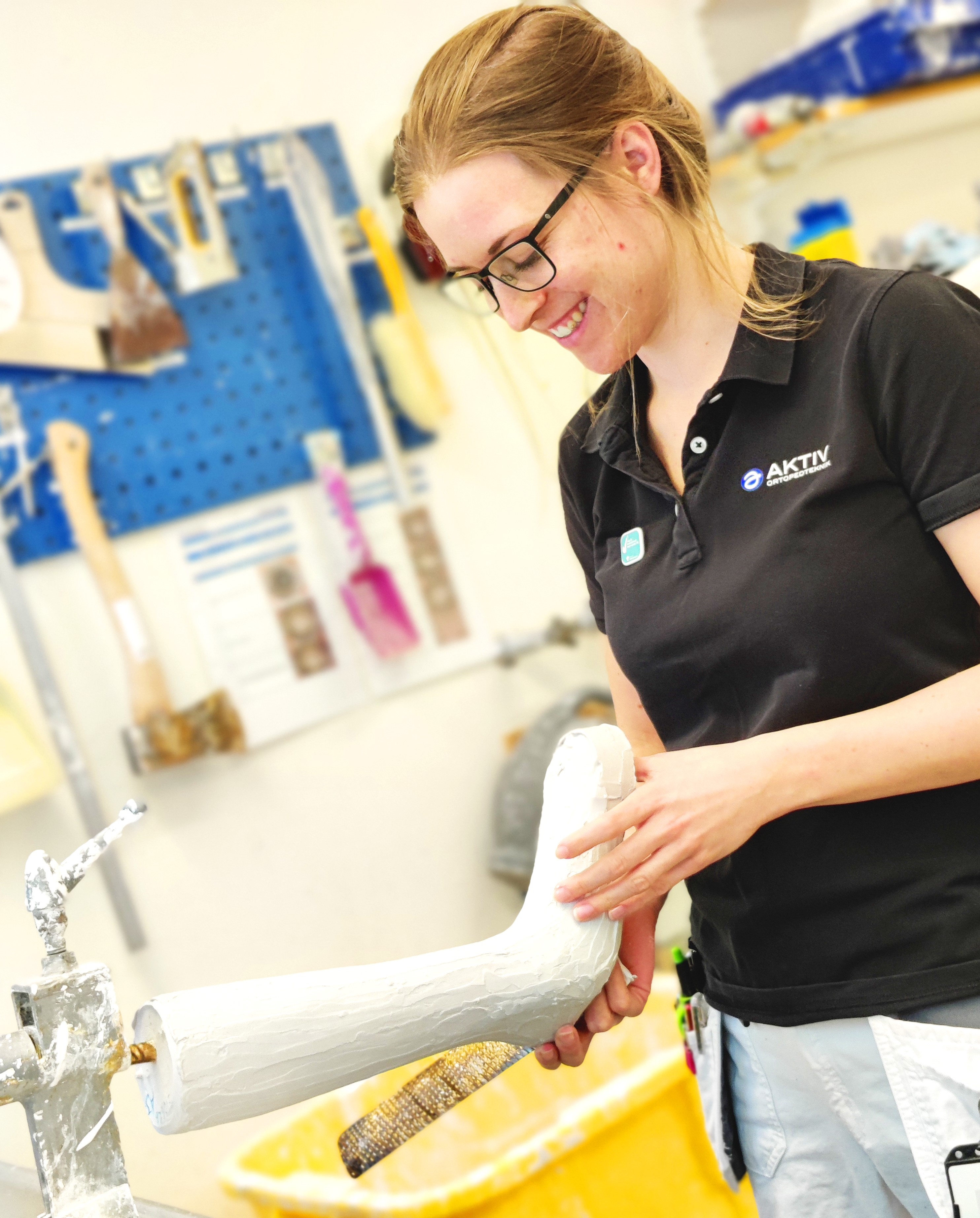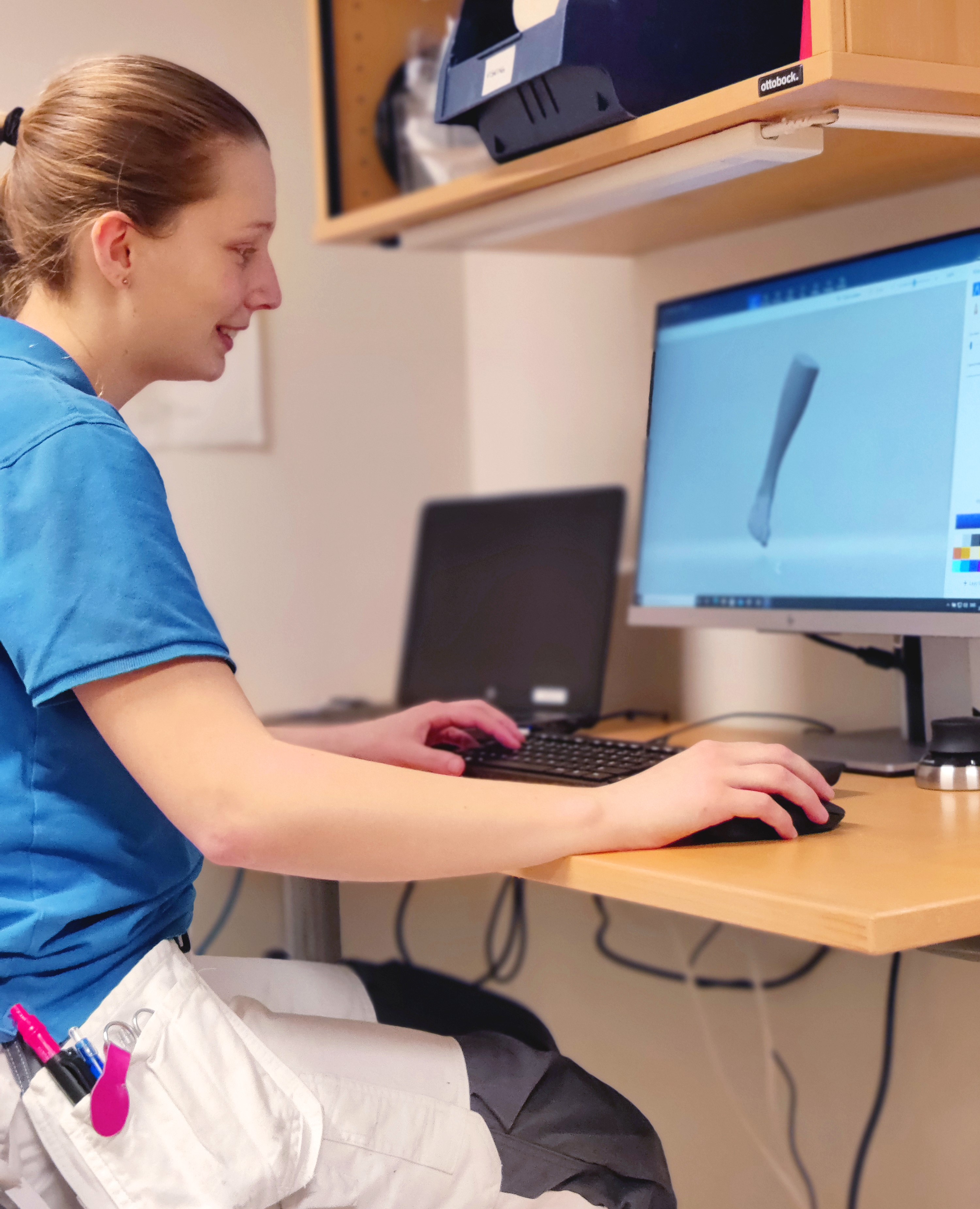
Camilla at her job as a prosthetist. Pictured here in the company workshop, she is adjusting a prothesis for one of her patients.
Frida, Anna och Camilla have all studied the Prosthetics and Orthotics programme at the School of Health and Welfare at Jönköping University (JU). Today they are colleauges and their job is to help develop assistive technology for people that need prosthetics or orthotics in order to make their every day life work, after having lost or damaged a body part.
Camilla and Anna thought that the profession as prosthetist/orthotists and the mix between working with your hands, head and machines seemed exciting. For Frida the choice was not quite as obvious as she was originally contemplating a different career path.
"In my final year of high school I was determined to study to be a physiotherapist, so I asked to shadow a physiotherapist during a day's work at a rehabilitation center and within the home care services, to see what the job looked like. During that day I got to join something called "walking-school" and meet with amputees that had recently been given a prothesis and were practising walking. A prosthetist/orthotist was also there and told me about his profession. After that I was sold! The new prothesis users were so happy and positive, and above all else proud to show how much they could do. Then and there I knew that the feeling you got in that room was something I wanted to help create," says Frida.

Frida, pictured here with a plaster that will become a foot orthosis. She enjoys her job and being able to help the patients with tailor-made solutions that enable them to walk again.
All three think that the prosthetics and orthotics education was good and crucial for working as prosthetists.
"The education gave a theorethical foundation to understand the biomechanics behind the assistive technology we help develop and test on the patients. The knowledge of anatomy and physiology was important to gain an understanding of how the human body works and how it is affected when something deviates," says Camilla.
During the education the students had VFU/work placement both during the second and third year, and all three found it very valuable.
"The work placement as very useful, since the school environment differs a bit from work life. Above all it was fun to meet different patients to see how the solutions are adjusted to each individual," says Anna.
Camilla points out that during the work placement you could recieve a greater understanding of how the theory, which is studied during the education, is tied into the practical elements of the professional role.

"I enjoy the variation in this profession, working with machines, my hands and my head," says Anna.
"It was then that I really understood how the theoretical knowledge works in reality," she says.
All three received job offers before they had finished their education. Now they work within Aktiv ortopedteknik in Västerås and Eskilstuna and really enjoy it.
"An important part of my professional role is that I get to be creative and at the same time add quality of life for the patients, that is something that I am very proud of," Camilla says, and Frida continues:
"That the work tasks are very varied and also that I get to work both with my hands and my head is among some of the best things. In addition, I now get to be part of the joy I felt with the patients at the rehabilitation center the first time I came in contact with the profession. Just imagine, through my work, I can help people walk again!" she finishes.
Content updated
